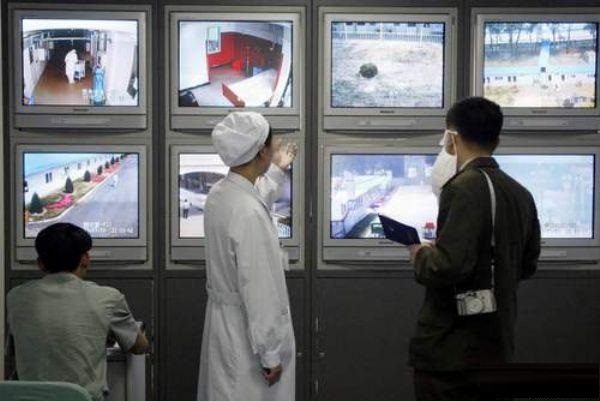The rise of smart medical care: the security market has great potential to dig in the future
The medical and health undertakings are related to people's livelihood. The state has always attached great importance to and steadily promoted the reform of the medical and health system. In the "13th Five-Year" development plan for medical and health care , medical informatization has been identified as a key breakthrough area and has been included as the focus of the country's "13th Five-Year Plan" informatization development. Among them, in the medical information construction including telemedicine information system, medical information platform, hospital intelligent system, etc., the security system is very important. I. Problems in the traditional security construction of hospitals The traditional medical security system is mainly based on video surveillance, alarm, access control and perimeter prevention. As far as video surveillance is concerned, although many hospitals are currently building "safe hospitals", most of them still stay in basic video surveillance. In this way, the focus of the business is completely placed on the distribution point, instead of giving the security personnel systematic training, the protection effect is naturally greatly reduced. Not only that, traditional cameras based on analog and general-purpose, standard-definition can not match the complex scenes of today's hospitals, which seriously affects work efficiency. Therefore, the demand for megapixel high-definition, star-light ultra-low illumination guns, wide dynamics and infrared high-speed domes is becoming a standard in the future. As far as the alarm system is concerned, most hospitals are currently in a state of deficiencies. Even in most top three hospitals, the alarm system is limited to fire alarms and intrusion alarms in some key areas. At present, it not only includes the lack of alarms for improving the safety of medical personnel, but also the lack of pickup systems in the contradictory areas such as registration, pharmacy, and clinics, and most hospital alarm systems are not compatible with video surveillance systems. This not only reduces the efficiency of the monitoring center, but also greatly increases the risk of security and prevention, especially in the case of sudden patient-patient conflicts. Therefore, monitoring alarm linkage is the mainstream trend. It can not only facilitate the monitoring center to understand the actual situation of the site, lock key targets, organize manpower deployment to eliminate danger as early as possible in the event of an emergency, but also greatly reduce system complexity, stability and work. effectiveness. As far as the access control system is concerned, most hospitals are not currently on the line. However, setting up access control systems in important departments such as windows, pharmacies, warehouses, studios, finance rooms, and computer rooms can not only greatly enhance personal and property safety, but also significantly reduce the cost of profit and loss. After the access control system is installed, only the relevant personnel of the department and the relevant leaders of the superior level can allow access during the specified time period, and the video monitoring and video recording will be linked at any time. As far as the perimeter prevention system is concerned, although most hospital-related personnel currently believe that the hospital is an open area, there is no need for perimeter protection. And because of history, local realities and many other reasons, many hospitals are really difficult to distinguish the perimeter. However, in order to truly achieve the "safe hospital" and to deploy the three-dimensional "Tianluo network " of security , the perimeter defense system is an important part of it. Perimeter defense systems based on intrusion prevention, electronic fences, electronic patrols, and regional alarms can minimize risk control in non-core areas. Not only that, in the face of increasingly serious medical incidents, medical disputes and other sudden incidents, the deployment of perimeter perimeter prevention system can provide double security for hospital security. Second, the new demand changes in hospital security In recent years, with the rapid development of technologies such as big data, cloud computing, Internet of Things, and mobile internet, the voices of various industries and industries for networked, high-definition and intelligent security demand are getting higher and higher. At this stage, hospitals are no longer only satisfied with the construction of "Ping An Hospital", but also pay more attention to requiring security to play more roles in including emergency medical emergencies. Therefore, emerging demands such as emergency command, distance learning, and remote access have emerged in the field of medical security, and corresponding personalized solutions have emerged. For example, in the registration hall, operating room and other places should be installed network HD low-light monitoring camera to achieve high-definition monitoring; for emergency room, ICU ward, parking lot, etc. need to open monitoring 24 hours, you can install network HD infrared low illumination even The starry sky ultra-low illumination camera, etc., is convenient for nighttime monitoring; for the registration window, pharmacy window, medical treatment window and other high-risk areas where doctors and patients have contradictions, it is advisable to equip the pickups to facilitate evidence collection and post-mortem backtracking. GMP Certificated Immune Globulin Injection Supplier in China Hepatitis B Immunoglobulin,Hep B Immunoglobulin,Hepatitis B Immunoglobulin Vaccine,Hepatitis Immune Globulin FOSHAN PHARMA CO., LTD. , https://www.fspharmamedicine.com